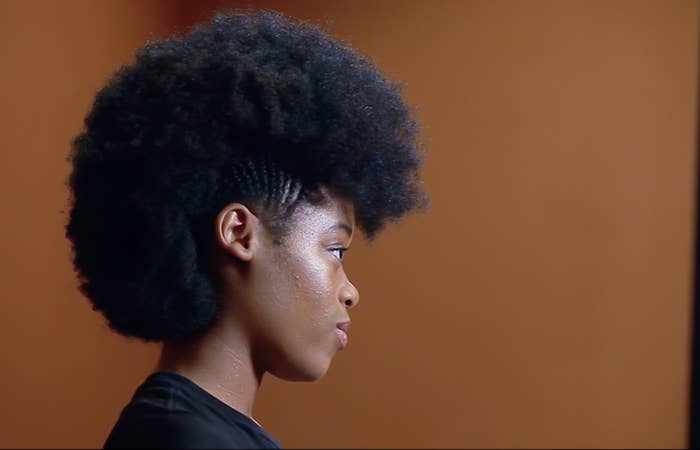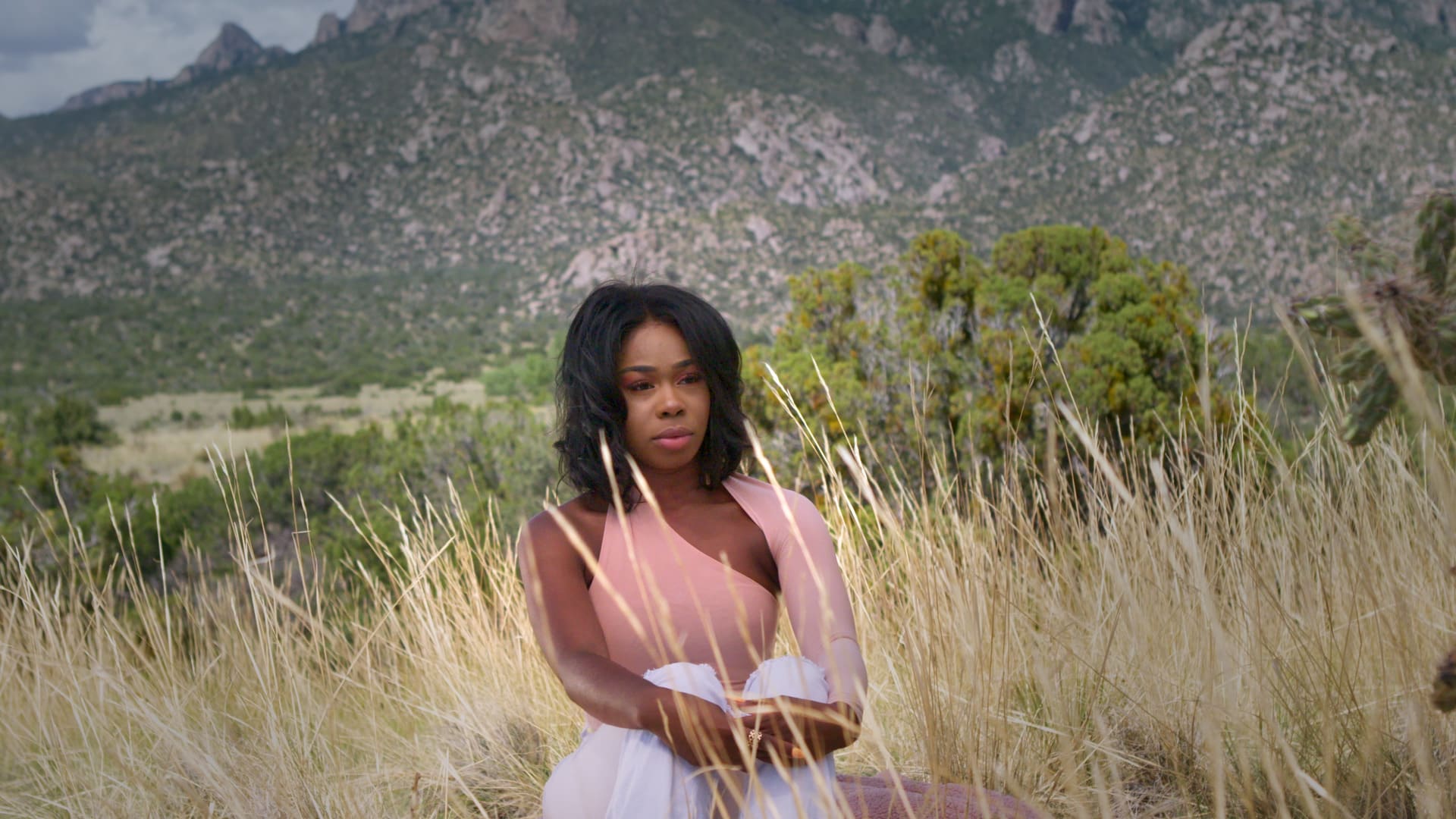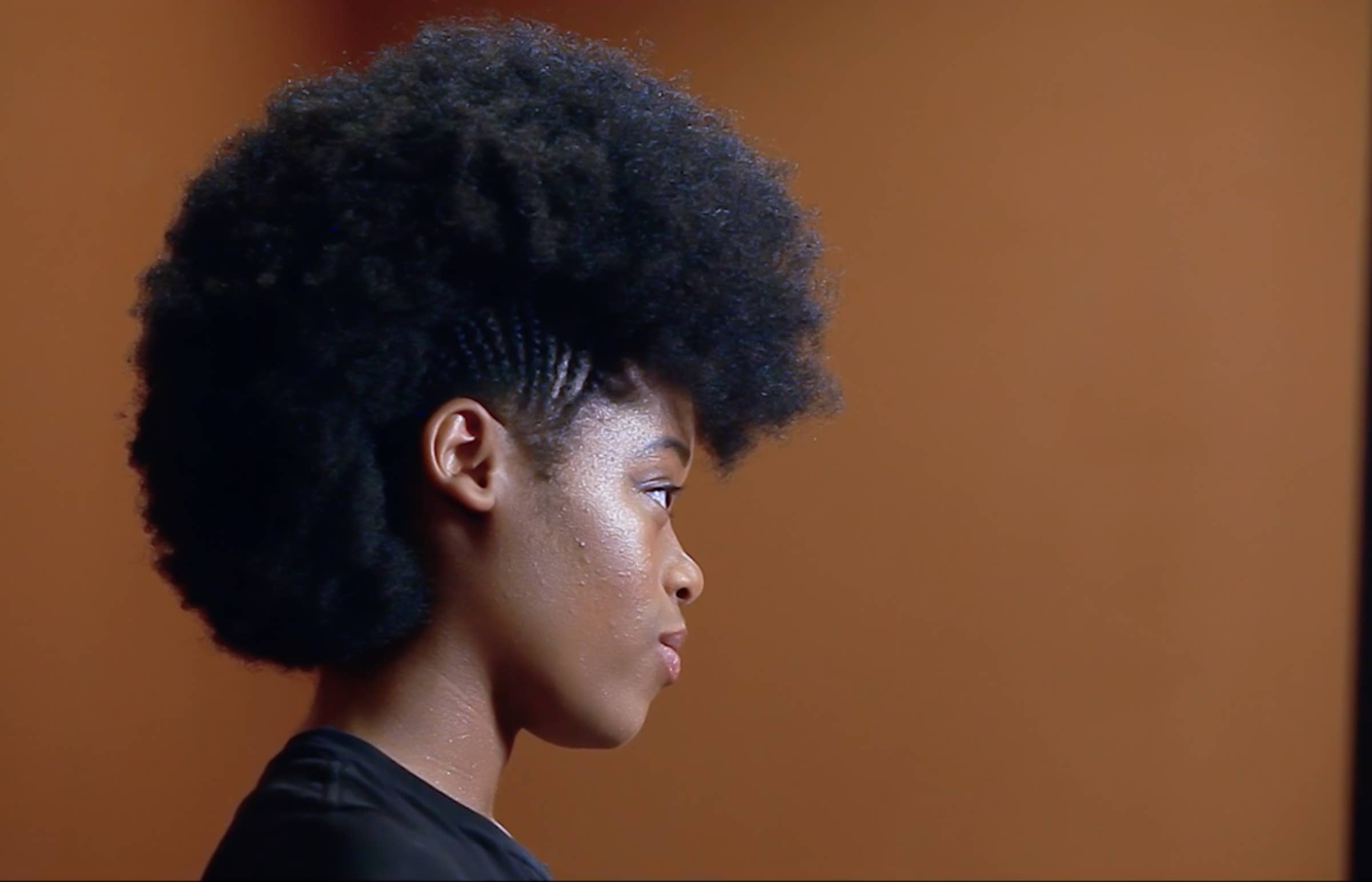
Toronto-based filmmaker Jennifer Holness is well aware of how Black women are seen and treated today, and the limited confines within which they’re allowed to exist. Having teenage daughters especially made her want to explore the dangerous narratives interwoven into the story of Black women, the persistent racial bias in Western beauty norms, and the power behind these notions.
She has worked as documentary filmmaker for nearly 20 years and now makes her directorial debut with the documentary Subjects of Desire. The film, airing on TVO this weekend and available to stream on the network’s site right now, explores how North American beauty standards have shifted towards embracing Black female aesthetics while simultaneously excluding Black women.
Holness says she faced major challenges getting the film made. It was repeatedly turned down by execs who had “the sense that this was completely irrelevant, that we should only be concentrating and concerned about women and their professional and economic and educational concerns. Why do we care about beauty?” she tells Complex Canada. “It’s a lie, that question, because the question pretends that beauty isn’t power. [But] if you have beauty, there is a power that comes with it. It gives you access to jobs, it gives you access to things you might want, where you live. It protects you in a hospital, when you’re going to have your baby, when someone says this is a valuable person, and we need to take care of her versus, “Oh, it’s just a Black woman, and she doesn’t really feel pain.”’
Undeterred by gatekeepers, Holness has been fighting to make the Canadian arts industry more equitable and get more investment in Black talent and content. She also executive produced BLK: An Origin Story, a limited series, premiering Feb. 26 on History Canada, which delves into the untold story of Blacks in Canada and their deep historic impact on the country.
What’s more, she’s a founding member of the Black Screen Office, a national organization that advocates for Black creatives and producers in the screen-based industries.
Holness opened up to us about the challenges she faced when making Subjects of Desire, the conversations she hopes to inspire, what needs to change so that we can see more Black narratives and storytellers prioritized in Canada.
Let’s talk about Subjects of Desire. What drew you to documenting modern-day Black womanhood through the lens of the Miss Black America pageant?
One of the things I always say is that I have been in the skin of a Black woman for all my life. The question of appropriation, it’s not something you can’t slip out of, it’s always there. And when people see you, that’s what it is. I wanted to really work and tell the story because I have been aware of how Black women are seen and treated, and the narrow confines in which we’re allowed to exist in some ways, even if we ourselves don’t really contemplate it on a deeper level. I wanted to look at that and it was in the context, though, of having teenage daughters, and seeing them experience some of the things that I’ve experienced, and then recognizing because these dangerous narratives have been so interwoven into the story of Black women, that we almost have no choices, but to experience some of these things. I wanted to look at that, expose what was the truth about some of these experiences.
“One of the things to be cognizant of is that we’re still seeing images where darker skinned Black women are more the mothers or the maternal type, or, cast as heavyset, and fair-skinned women are cast as the beauty queens or the girlfriend.”
There’s a clip in the documentary where Malcolm X says, “The most disrespected person in America is the Black woman.” That statement just struck me. What does it mean to be a Black woman in North America in 2022?
The statement still holds truth. This is what’s awful. First of all, I want to say that the Malcolm X clip is in there for a reason. What a lot of people don’t realize is that Malcolm X also believed that Black women and their beauty was a political stance, like, standing up for Black women and their beauty. So he was giving a lecture to a woman’s organization about the beauty of Black women and for them to reject the white ideals standards. That’s what that was. So it’s not a mistake that he randomly showed up. No, this was something he believed in a separate Black pageant. Right? He thought that that would be empowering for Black women.
Now, flip 50 years later, the Miss Black America pageant is having its 50th anniversary. And strangely enough, we’re in a time where Black beauty, all of those women, they still felt that this Miss Black America pageant was still needed, that they needed a space where their beauty can be celebrated for who they are. So if you looked at the pageant, different body types, short hair, long hair, bald, all of us, it was a space where Black women could just be unequivocally beautiful in the way they felt it. So, do you think we need a space like that? Absolutely.
I’ve been talking about this a lot lately. George Floyd got murdered, and white folks recognize Black experiences that they never saw somehow before. What that meant was a commitment to Black communities and what that meant was more investment in Black communities and what that meant is an acknowledgement in Canada, for example, of how little has been done for Black people in the media space. So there is now a real drive to change that, and I think change is happening. But here’s the thing. One of the things to be cognizant of is that we’re still seeing images where darker skinned Black women are more the mothers or the maternal type, or, cast as heavyset, and fair-skinned women are cast as the beauty queens or the girlfriend. You’re always seeing a dark, dark-skinned Black man with a very fair-skinned black woman. That’s still a part of the problem. So what’s it like to be in a Black woman in 2022? It’s still highly problematic. And also, the narratives—the Mammy, the Jezebel, the Sapphire—they’re still ingrained in how we perceive each other. So there is work to be done and I think the film speaks to that.
Do you think the mentality in America and Canada differs significantly when it comes to the definition of beauty?
No. No, I don’t, actually. The film tells us and we know this—there is a standard of beauty that’s been the norm for forever. We also don’t realize that it was and I didn’t deal with this, because this film was not about white women, specifically, like the gaze was really more on the Black women. But German philosophers, they purported a notion of what beauty is, and beauty was white womanhood. White womanhood was beauty. Period. That is something that was cultivated, and passed along. So, I mean, when that’s the standard of beauty, the closer you are to that standard, the more accepted you will be, the further you are away.
Naomi Campbell has occupied the space of one of the most beautiful women in the world and she happens to be a darker complexion Black woman, right? She’s been the top model of all the Black models in the world and she still reigns in her fifties, which is kind of crazy to me. Viola Davis is a brilliant actress, and she’s been recognized for her brilliance and she’s played both not just maids now, but she’s playing wives and protagonists and so forth. Regina King had an incredible two, three years, and she’s brilliant. Issa Rae. These are darker complexion Black women who are taking up space. And then there are fair-skinned beauties, like Zendaya, and so forth. My thing is, I want to see a world where we can have this range that is us be glorified and put forward and treated like their value. I’m saying that that’s what we need to be and Canada is not there yet. America is not there. But I’m hoping that the conversation that this film can generate will help to make people think about this, when they get to the next casting and these kinds of things. I think one side is, we’re all Black people, and the next side, it’s we divide and conquer. We got to stop it.

You said that you had to fight for the version of the film that you see. What were some of the major challenges you faced to make a doc like this? What did you keep getting as a response?
First of all, there’s the sense that this was completely irrelevant, that we should only be concentrating and concerned about women and their professional and economic and educational concerns. Why do we care about beauty? Now here’s the thing. Why, indeed. I’ve never been a part of a beauty pageant. I’m not interested in it. But here’s the thing. It’s a lie, that question, because the question pretends that beauty isn’t power. [But] if you have beauty, there is a power that comes with it. It gives you access to jobs, it gives you access to things you might want, where you live, you know what I’m saying? It protects you, in a hospital, when you’re going to have your baby, when someone says this is a valuable person, and we need to take care of her versus, “Oh, it’s just a Black woman, and she doesn’t really feel pain.” And “Oh, they have bad eating habits and that’s why she’s dying on the hospital bed. That’s why her baby’s dying.”
There’s a consequence to where the value, whether we like it or not, is placed on female beauty…. I do believe the reason why 40-odd percent of the sex traffic people in America are Black women but the only stories we talk about and write about are predominantly the white women who are sex trafficked, which is like 25 percent. You would never know that Black women were sex trafficked at a much higher rate than white women. Because the only movies we’ve ever seen are about white women being sex trafficked. That is power. That is value. Why are white women seen as more powerful, more valued? Because they’re ‘beautiful,’ because they’re ‘feminine,’ they need to be protected. They bring a desirability that you want in your space that’s plastered on magazines. Beauty is not benign. When people were challenging me and saying, this film is not important, because you’re focusing on the wrong thing, I knew it was a lie. And that was one of the challenges. People turned me down.
“More content being created by diverse people and Black people means that more diverse and Black people will see this, and they’ll be like, ‘This is an option for me, this is an opportunity for me.’”
What more can be done and what would you like to see change to make content with Black narratives and storytellers more front and centre?
Well, I really think that we had so little support to have our versions of the story out there. Gatekeepers are one of the number one things and then actual monetary investments into building Black talent. And then last but not least, it’s also mentoring and exposure. More content being created by diverse people and Black people means that more diverse and Black people will see this, and they’ll be like, ‘This is an option for me, this is an opportunity for me.’ I know that I never thought about being a filmmaker growing up at all, because there was no one in my space that knew anything about writing or directing or producing. I’ve never even thought in any real way, ‘How does this get done?’ My mother was an RNA. She had two jobs. We weren’t going downtown to movies. So I do think that the exposure to content from diverse creators is one thing, the investment into our stories, and then having gatekeepers who can actually recognize the value in something that you put forward. Because sometimes some of the existing gatekeepers, they might mean well, but they’re like, “This is not important. I don’t get it, but I get this.” So that means that you don’t get supported. So those are some of the things we have to do.

You co-founded the Black Screen Office and are working to connect underserved BIPOC film talent with the traditional industry power systems that you yourself navigated for over two decades. How has that been going so far?
It is a challenge, because let’s put it this way. I’m not going to name names, but I’m on the front end in these volunteer organizations as a board member. There have been weeks where I’ve spent 20-25 hours doing work on the various boards, and some of the other people in the space, they don’t do this. I kicked myself sometimes because I think this is what happens to Black women—[we] take it on, because others aren’t. I’m talking about behind the camera doing the hard work. There’s no reason for me necessarily to do this. But I do. I’m writing something for the BSA. I’m reading through the studies. I’m advocating in every way.
CISF, which is another organization that I’m a co-chair on, I’m trying to raise $20 million for a BIPOC fund, and when the $20 million come, they’ll turn around and say, “Well, you organized it, and you’re on the board so you probably shouldn’t get any of that money, even though you’re making content.” This is the stuff that that’s coming up.
Recently as a member of the BSO, there was an opportunity for us to go to a market. I’m fairly prolific, and I’m a very hard worker, and BSO has accomplished a lot of amazing things this past year, I’ll tell you this. There was an opportunity for 15 producers to go to Berlin. I said, “Oh, I would love to have one of the passes because they’re helping us to do this.” I was told that board members couldn’t have access to this. So, here we are working 20-odd hours some weeks, free, and nothing. Since I’ve joined the boards, for example, there’s been nothing that I’ve actually accessed in terms of monetary. When we put out the Rogers BSO fund, I didn’t apply because I wanted it to go to the new filmmakers, even for the first round. I didn’t want to have it look like self-serving or some of that. I literally took myself out of the game. And now to be told, I can’t even get a pass to go to a market by CMF. Even though if I wasn’t on the board, I would be one of the first people who would get that because I’m actually prolific and go to markets. I want you to publish that one, because that’s what’s happening. So, they punish you. It’s hard. It’s a commitment. No one sees the kind of demand. Even for BSO, even our policy stuff, our advocacy stuff, our new board members, I’m in the trenches figuring out who to help to bring to the board to make it stronger. What are the things that we should be going after to entrench Black creative excellence in this country?
Right now, a lot of organizations are doing this thing when it comes to be BIPOC funds—not BIPOC because the Indigenous have their own money—where 50 percent of the funds goes to Black folks. That was something I negotiated with CISF, to say that if we get funding 50 percent goes to Blacks, because in the system of racism and structural and systemic racism, Black people have the worst outcomes, and when resources come into communities, everybody else takes it because they’re higher educated, they don’t have the crime association, they don’t have the negative spin-offs. So we need to come in there when we get more out of this. I worked on that to get that approved that CISF. And now almost every organization is following this. And yet, I’m not able to get a minor pass to go to a market because what? So yeah, so that’s what it’s like.
What changes are you hoping to make to remove the systemically racist barriers to allow for better access and achievement?
Well, you know, we have a great leader at Telefilm with [CEO] Christa [Dickenson]. I really feel like that was somebody who’s putting her money where her mouth is and really is supportive. They’re working to change how Telefilm does business when it comes to Black and people of color and the LGBTQ+ as well. So they’re working really to make sure that those those underserved groups are now going to be supported. I do believe that. So what has to happen is to find more allies like the Christas, more people willing to step up. CBC stepped up quite strongly in that they hired to gatekeepers; Lea Marin is now the head of development drama at CBC and Jennifer Shin, who’s the head of comedy development at CBC. I’m seeing they’re hiring more diversity, which is important because I think gatekeepers is the number one thing. So we have to see more of that and we have to see it in all of the film and television institutions. So that’s, and that is one of the things BSO is always working towards, CISF is working towards. I’m also a board member on CMPA. I run a committee and my whole energy is, how are we going to bring change to the industry through the producers, industry leader organizations? So it’s getting these organizations to actually step up, do the work, put the people in place, and actually, and this is very important, help us find new sources of money. Because one of the problems is that we’re a government system for the most part and people get their money through these systems a lot. One of the things I’ve said very clearly, we don’t want to take money that’s already there. We want new monies to be put in.
I’ve heard so many things from the Trudeau government about their commitment to diversity and on some level, it’s happening, but right now, the big conversation is about giving more money to French in Quebec, and I hear no conversation about a set amount of money out of all that to diverse communities. And I don’t understand why. So it’s really, what has to happen is gatekeepers, the politicians, the people who make decisions, we got to really try to work with them and have them work with us to make a more equitable system.



